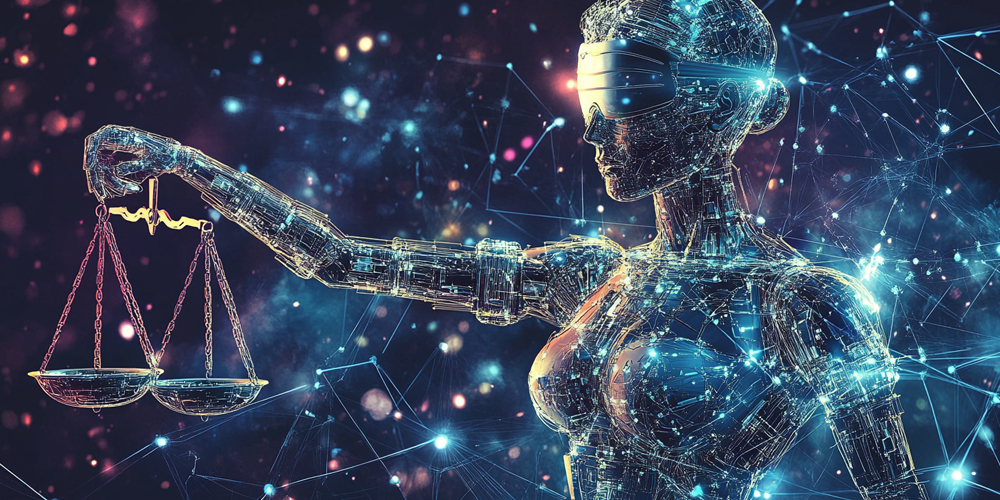Artificial Intelligence (AI) is no longer just a futuristic concept—it’s already transforming the way we live, work, and interact with the world around us. As we move into 2024, AI technologies continue to evolve rapidly, providing solutions to challenges across various sectors. In business, healthcare, and beyond, AI is helping to drive innovation, increase efficiency, and enhance the quality of life.
This article will explore some of the most exciting AI trends currently shaping industries. From improving business processes to revolutionizing healthcare systems, AI is unlocking new possibilities for organizations and individuals alike. Let’s take a closer look at how AI is making a significant impact in various fields.
1. AI in Business: Automating Operations and Enhancing Customer Experience
Streamlining Operations with Automation
AI has been a game-changer for businesses by automating tasks that were once manual and time-consuming. In 2024, businesses are leveraging AI to handle everything from data entry and inventory management to customer service and financial analysis. This automation reduces operational costs, increases efficiency, and frees up human workers to focus on more strategic, creative tasks.
Robotic Process Automation (RPA) is one of the most widely adopted AI technologies in business. RPA uses AI to automate repetitive tasks, such as processing invoices, handling customer inquiries, and managing email responses. This automation not only speeds up processes but also reduces human error, ensuring that tasks are completed more accurately and consistently.
Enhancing Customer Experience with AI
AI is also playing a pivotal role in improving customer experiences. Businesses are using AI-driven tools to analyze customer data, predict preferences, and provide personalized recommendations. These AI-powered systems can engage customers in real-time, offering personalized suggestions for products, services, or content.
Chatbots and virtual assistants are becoming commonplace in customer service. By 2024, businesses will use more advanced AI chatbots to provide instant, 24/7 support to customers. These chatbots are capable of handling a wide range of inquiries, from tracking orders to troubleshooting technical issues, offering quick solutions that enhance customer satisfaction.
AI is also helping to analyze customer feedback and sentiment in real-time. This allows businesses to make more informed decisions about product development, marketing strategies, and customer engagement.

2. AI in Healthcare: Revolutionizing Patient Care and Medical Research
Improving Diagnosis with AI
One of the most exciting applications of AI in healthcare is its ability to assist doctors in diagnosing diseases more accurately. By analyzing large datasets of medical records, AI algorithms can identify patterns that may be missed by human doctors. In 2024, AI tools will be used to diagnose a wide range of conditions, from cancers to rare diseases.
For example, AI-powered imaging tools are already helping radiologists to detect tumors and other abnormalities in medical images. These systems can analyze X-rays, MRIs, and CT scans in seconds, providing highly accurate results that improve diagnosis times and reduce the risk of human error.
Personalized Treatment Plans
AI is also transforming the way doctors create treatment plans for patients. By analyzing individual health data, such as genetic information and lifestyle factors, AI can help physicians create highly personalized treatment strategies. This approach ensures that patients receive the best possible care based on their unique needs.
In the coming years, AI-powered predictive models will be able to forecast health risks and recommend preventive measures before serious conditions develop. This will empower patients to take proactive steps toward maintaining their health, potentially saving lives and reducing healthcare costs.
Accelerating Drug Discovery
AI is speeding up the process of drug discovery by analyzing vast amounts of data to identify potential drug candidates. Pharmaceutical companies are using AI to simulate how different compounds interact with the human body, significantly reducing the time and cost required to bring new drugs to market. In 2024, AI tools will be instrumental in identifying promising treatments for complex diseases such as cancer, Alzheimer’s, and rare genetic disorders.
By processing massive datasets and running simulations at speeds far beyond human capacity, AI is enabling researchers to find potential therapies faster and more efficiently. This will result in the development of new, life-saving drugs in a fraction of the time it would take with traditional methods.
3. AI in Education: Personalized Learning and Enhanced Accessibility
Tailoring Education to Individual Needs
AI is also making waves in the education sector. By 2024, AI-powered learning platforms will provide highly personalized education experiences for students. These systems can analyze a student’s strengths, weaknesses, and learning preferences to create customized lesson plans, helping them learn at their own pace.
Adaptive learning technologies are already being used to provide personalized tutoring. AI tutors can help students master complex subjects by offering tailored explanations and practice exercises. These systems adjust the difficulty of tasks based on the learner’s progress, ensuring that students remain engaged and challenged.
Enhancing Accessibility for All Learners
AI is also enhancing accessibility in education for students with disabilities. Speech recognition, text-to-speech, and language translation tools are making it easier for students to access learning materials. For example, AI-powered apps can translate course materials into multiple languages, allowing students to learn in their preferred language. This promotes inclusivity and ensures that education is accessible to all.
Moreover, AI tools are enabling students with visual impairments to interact with educational content through voice commands and audio descriptions, making learning more inclusive.
4. AI in Manufacturing: Optimizing Production and Supply Chains
Smart Manufacturing with AI
The manufacturing industry is also benefiting from the power of AI. In 2024, AI will be used to optimize production lines, predict equipment failures, and manage inventory more efficiently. Predictive maintenance systems powered by AI can forecast when machines are likely to break down, allowing manufacturers to schedule repairs before costly failures occur. This reduces downtime and ensures smoother operations.
AI is also playing a significant role in improving supply chain management. By analyzing data on production rates, shipping times, and inventory levels, AI can optimize supply chains to reduce costs and increase efficiency. This allows manufacturers to deliver products faster and more cost-effectively.
AI-Powered Robotics
Robotics, powered by AI, is revolutionizing manufacturing. Robots are becoming more intelligent and capable of performing complex tasks, from assembly to quality control. These AI-powered robots can work alongside human workers, handling dangerous or repetitive tasks while humans focus on higher-level decision-making.
As AI continues to improve, these robots will become even more sophisticated, enabling factories to produce goods more efficiently and safely.
5. AI in Security: Enhancing Protection and Threat Detection
AI-Driven Cybersecurity
As cyber threats become more sophisticated, businesses and governments are turning to AI to bolster their cybersecurity efforts. AI-powered security systems can detect unusual activity in real-time, identifying potential threats before they escalate into major breaches. These systems use machine learning algorithms to continuously analyze network traffic, user behavior, and system vulnerabilities.
In 2024, AI will be critical in protecting sensitive data from increasingly advanced cyber-attacks. AI-driven firewalls, intrusion detection systems, and predictive threat models will become the standard in cybersecurity, making it easier to protect systems from hackers and malware.
Facial Recognition and Biometric Security
Facial recognition technology, powered by AI, is becoming more accurate and widely used for security purposes. In 2024, facial recognition will be deployed in public spaces, offices, and even personal devices to enhance security and streamline access control. AI algorithms are also improving other forms of biometric identification, such as fingerprints and retinal scans, to provide an added layer of security.

6. The Future of AI: Challenges and Ethical Considerations
Addressing Bias and Ensuring Fairness
While AI holds tremendous potential, it also raises ethical concerns. One of the biggest challenges is algorithmic bias—when AI systems make decisions based on biased data, leading to unfair or discriminatory outcomes. In 2024, addressing these biases will be a top priority for AI developers. Ensuring that AI systems are transparent, fair, and unbiased will be crucial in maintaining public trust.
Regulating AI Technologies
As AI continues to grow, governments will play a critical role in regulating the technology. In 2024, expect to see new laws and regulations aimed at ensuring AI technologies are used ethically and responsibly. This may include guidelines on data privacy, security standards, and transparency in AI decision-making processes.
Conclusion: Embracing the AI Revolution
AI is no longer just a buzzword—it’s transforming industries and shaping the future. In 2024, AI technologies will continue to evolve, offering innovative solutions across business, healthcare, education, manufacturing, and security. While challenges remain, the potential for AI to improve efficiency, enhance personalization, and create new opportunities is enormous.
By embracing AI, businesses, healthcare providers, and other sectors can unlock new levels of productivity and innovation. As we look ahead, it’s clear that AI will play an integral role in shaping a brighter, more connected future.





